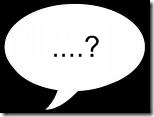 Ever since I have been living away from my home country of England, I have noticed myself picking up on what I would consider misuses of the English language. On the most part, they are Americanisms, for which I take great pleasure and amusement in refusing to understand, until the person uses the English pronunciation. However, I also seem to hear an awful lot of completely made-up words or incorrect grammar. One may argue that this does not matter, as long as you can communicate the message but I guess being from the country that shares it’s name with the language, I have a built-in pride for it’s correct usage.
Ever since I have been living away from my home country of England, I have noticed myself picking up on what I would consider misuses of the English language. On the most part, they are Americanisms, for which I take great pleasure and amusement in refusing to understand, until the person uses the English pronunciation. However, I also seem to hear an awful lot of completely made-up words or incorrect grammar. One may argue that this does not matter, as long as you can communicate the message but I guess being from the country that shares it’s name with the language, I have a built-in pride for it’s correct usage.
In development, things are usually not so forgiving when it comes to language. If you don’t get the spelling or grammar correct, it just will not compile or operate as expected. That is, except for HTML. Browser rendering engines are not fussy at all when it comes to HTML and will render pages happily, even when the code is all over the place. There is historical reason for this but unfortunately it seems to have lead to complete complacency in developers.
HTML is not a difficult language, it is simple to understand, there are not that many grammar rules and the vocabulary is tiny. So why then is there such a massive quantity of web developers who are just not that fluent in the language? I am not talking about just being able to get a page to look like the design. I am talking about expressing the content of the page using correct elements and combinations there of. There is a reason behind every html element, they were created because of a need, and each should be used where it is appropriate to do so.
If you are from the school of thought that does not worry about this, as long as it renders as the designer imagined, then there are good reasons why you should be thinking otherwise. Every day, web bots will be viewing your pages and trying to understand them. Screen readers do the same thing and a badly constructed page can be totally confusing to a blind person. You could be losing out on valuable traffic because of this. You could also find yourself with more work down the line. A site like Css Zen Garden shows just how much can be done with design without touching the html. That is not so easy when you have to work with a badly created page.
So what if that is not a big enough reason for you? Well, look at it this way. People who can speak correctly and have an extensive grammar, find themselves in a much better position than those who don’t. It can give a great first impression. The same thing is true for development. You may consider yourself pretty good in your chosen programming language but if you are sloppy in such a simple language like html, it could be the deal clincher in a job interview. It would certainly change my impressions of a potential candidate if they don’t have a decent grip on something that they should be able to in their sleep.
So how is yours? Time to brush up perhaps? Are you really that fluent? Be honest with yourself. How well do you speak html?
Edit: To all those that have taken this opportunity to pick holes in my use of language in this article: I do not consider myself an expert in English, by any means. I make as many mistakes as the next person. I now live away from England and on a daily basis I hear non-English people use phrases and pronunciations I was taught are incorrect. I don’t try to preach the way I was taught or consider that way the only way it should be done. My point was that something like Html should not have such variance. There is a worldwide standard we are all supposed to adhere to and were it not such a forgiving markup language, things would be much better.

Not sure that this is true:), but thanks for a post.
AlexAxe
Excellent article. I heartily agree. Comments are all spot-on. Communication is an art and takes dedication and patience. I’ve been a big promoter of writing HTML properly and people just don’t seem to think it’s important. WYSIWYG tools haven’t helped this at all.
@chris Yes, of course you are correct (I confess to writing this article very late a night). The fact that html is not even code should make any developer who has not mastered it even more ashamed.
@Jem / @grammarnazi / @Trey Try to focus on the point of the article. Don’t wanna start no beef ’bout my English, y’all.
Nice article, I just have one nit to pick: you referred to HTML as ‘code’ rather than ‘tags’, ‘markup’ or ‘markup tags’. Markup-tags are parsed and processed, code executes.
You may consider yourself
apretty good in your chosen programming language but if you are sloppy in such a simple language like html, it could be the deal clincher in a job interview.It would certainly change my impressions of a potential candidate if they don’t have a decent grip on something that they should be able to do in their sleep.
Dear self-professed language expert: kindly learn the proper punctuation of “its” possessive, and “it’s” as a conjunction of “it is”.
I know that’s not what the article is about, but my point remains the same. It doesn’t matter whether or not you’re criticising someone’s English, or their HTML, if you’re not spot on (you have mistakes in your HTML too) you risk being called out about it.
I’m not deliberately being an asshole in case that’s how I’m coming across (it wouldn’t be the first time), and I’m a huge advocate for what you’re saying (I think my HTML reflects that) but you are opening yourself up to responses like mine.
Thank you for pointing out the grammar mistakes – I was half expecting people to go through the article and point all those out.
I was not saying I criticise anyone for their use of the English language, I was just saying that I just notice (what I would consider are) mistakes. Besides, that not really what the article was meant to be about.
If you’re going to criticise others for their use of the English language, perfect your own first.
“loosing” should be losing, “than those that don’t” should be “than those who don’t” and so on.
Just food for thought – nobody’s perfect.